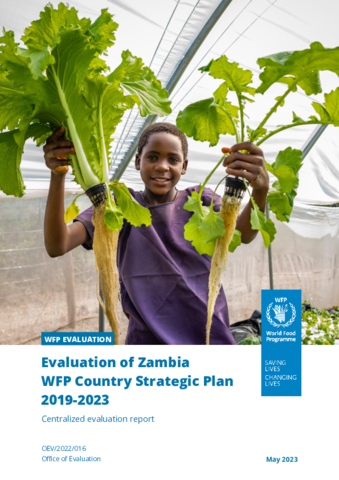
The evaluation was commissioned by WFP independent Office of Evaluation to provide evaluative evidence for accountability and learning to inform the design of the next country strategic plan (CSP) in Zambia.
It covers WFP activities implemented between 2019 and 2022 to assess results and the extent to which WFP Zambia was able to implement the intended strategic shift.
The evaluation concluded that:
- WFP was able to position itself strategically in Zambia and demonstrated its capacity to scale up to respond to droughts and Covid 19, although this limited the intended strategic shift away from direct food assistance.
- The CSP was aligned with national policies and relevant UN plans in the country and was based on WFP comparative advantages.
- Strong partnerships with government institutions, UN partners and private sector enhanced WFP’s contributions to outcomes.
- Effectiveness was high in the Covid 19 response, less so in the drought and refugee operation due to delays and funding shortfalls.
- In spite of some underfunding and under-execution across the SOs, important results were achieved in resilience of Small Holder Farmers and the Government’s successful takeover and expansion of the Homegrown School Meals programme.
- While targeting at community and household level was appropriate, geographical targeting excluded some highly food insecure provinces.
- Commitments on cross cutting issues were generally fulfilled except for environmental sustainability of the refugee operation and the Homegrown School Meals.



